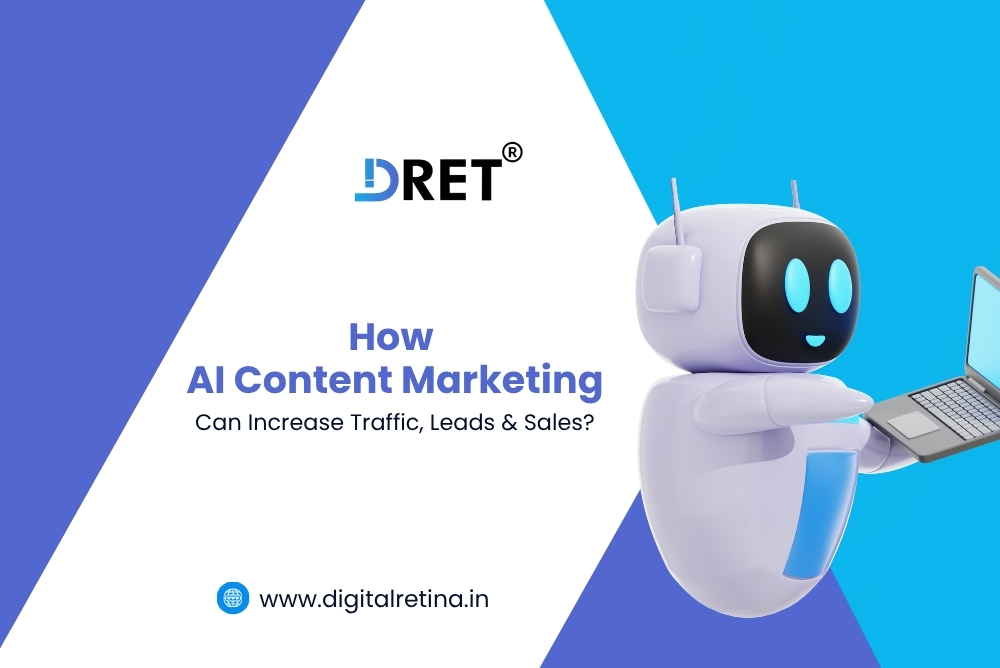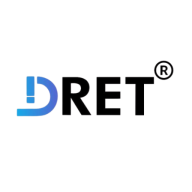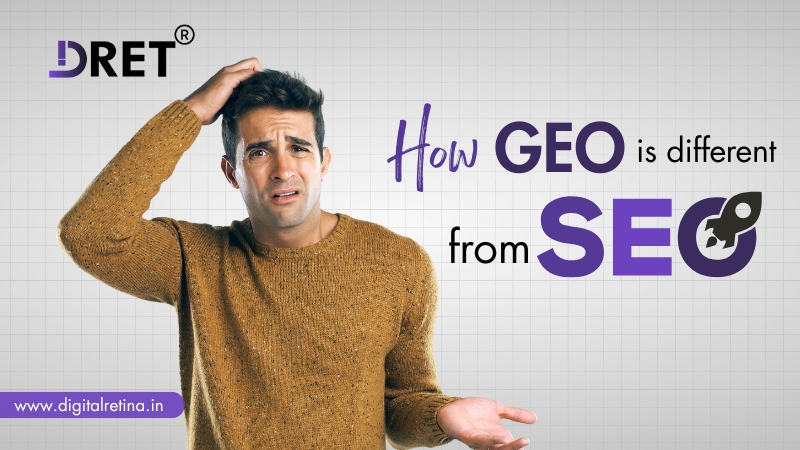
In today’s fast-paced digital world, businesses need innovative strategies to attract the right audience, generate quality leads, and increase sales. AI content marketing has emerged as a powerful solution, combining the intelligence of artificial intelligence with the creativity of content marketing. By using AI for content marketing, businesses can create highly personalized and engaging content, optimize it for search engines, and deliver it to the right audience at the perfect time.
AI-powered tools can analyze vast amounts of data to identify audience preferences, trending topics, and content performance patterns. This allows marketers to make data-driven decisions, improve targeting, and maximize ROI. From automating repetitive content creation tasks to predicting which topics will drive the most engagement, AI and content marketing together enable smarter strategies that save time while producing better results. Additionally, AI can optimize for Local SEO by identifying location-specific keywords, analyzing local search trends, and helping businesses rank higher in their target geographic areas.
What Is AI Content Marketing?
To understand AI content marketing, it’s important first to define content marketing meaning. Content marketing is the strategy of creating and distributing valuable, relevant, and consistent content to attract and retain a clearly defined audience, ultimately driving profitable customer actions—a process increasingly enhanced by AI SEO agencies that optimize content for higher visibility and engagement. Now, when AI is integrated into content marketing, we have AI and content marketing—a system where artificial intelligence enhances and automates key marketing tasks.
What Is NLP?
Natural Language Processing (NLP) is a branch of artificial intelligence that enables machines to understand, interpret, and generate human language. In the context of AI content marketing, NLP plays a critical role in analyzing text, predicting trends, and generating meaningful content.
Understand user behavior and preferences
Identify trending topics before competitors
Generate personalized content at scale
Optimize content for SEO and engagement
Automate repetitive marketing tasks
For example, content marketing examples of AI in action include AI-powered blog generation, personalized email campaigns, social media post recommendations, and predictive lead scoring. By leveraging AI, brands can produce smarter content, improve efficiency, and achieve better ROI.
10 Ways AI Content Marketing Drives Sales
AI content marketing is not just about creating content—it’s about strategically influencing customer behavior to increase sales. Here are ten actionable ways AI drives results:
Personalized Content Recommendations
AI analyzes user behavior and interests to recommend content tailored to individual preferences. For instance, e-commerce sites like Amazon use AI to suggest products, leading to higher conversion rates.
Content Optimization for SEO
AI tools analyze top-performing content, suggest keywords, optimize headings, and improve readability, helping your content rank higher in search engines. Tools like Surfer SEO and Clearscope are widely used for this.
Predictive Analytics for Lead Scoring
AI predicts which users are most likely to convert, allowing marketers to focus on high-value leads. HubSpot, for example, uses AI algorithms to assign lead scores, improving sales efficiency.
Automated Email Marketing
AI personalizes email campaigns by adjusting subject lines, content, and sending times based on user behavior, resulting in higher open and click-through rates.
AI-Powered Chatbots
Chatbots answer customer queries instantly, recommend products, and guide users through the buying journey—helping convert leads into sales. For example, Sephora’s chatbot offers beauty tips while promoting products.
Content Curation and Distribution
AI can find trending topics, curate relevant third-party content, and schedule distribution across platforms, ensuring consistent engagement without manual effort.
Social Media Insights and Optimization
AI analyzes engagement patterns, optimal posting times, and trending hashtags to maximize reach, increase followers, and drive traffic to websites.
Enhanced Video Marketing
AI can automatically generate captions, suggest edits, and create personalized video snippets that resonate with viewers, increasing engagement. Netflix, for example, uses AI to recommend content that keeps users watching longer.
Lead Segmentation
AI categorizes leads based on demographics, behavior, and past interactions, allowing marketers to deliver personalized campaigns that convert better.
Continuous Performance Analytics
AI tools track engagement, conversions, and ROI in real time, providing actionable insights for ongoing optimization. This allows marketers to make data-driven decisions that boost sales consistently.
AI Content Marketing Tips & Best Practices
Implementing AI successfully requires strategy. Here are some tips and best practices for using AI in content marketing:
- Understand Your Audience: Use AI analytics to track behavior, preferences, and engagement patterns. Tailor content accordingly for maximum impact.
- Balance AI Automation with Human Creativity: Let AI handle repetitive tasks but ensure human oversight to maintain authenticity and brand voice.
- Optimize for SEO: Use AI-powered SEO tools to select high-ranking keywords, optimize meta descriptions, and improve readability.
- Leverage Multi-Channel AI: Use AI across email, social media, blogs, and websites for consistent messaging.
- Experiment and Refine: Test different AI strategies, track performance, and refine campaigns for better results.
Identify Content Gaps: AI can analyze competitor content and industry trends, highlighting areas where your brand can provide value.
AI Tools for Increasing Website Traffic
Here are some AI tools that can help increase traffic, generate leads, and boost sales:
- ChatGPT & Jasper AI: Generate blog posts, social media content, ad copy, and email drafts.
- Surfer SEO & Clearscope: Optimize content for search engines and discover trending keywords.
- HubSpot & Marketo: AI-driven email automation, lead nurturing, and predictive analytics.
- BuzzSumo: Identify trending topics and competitor strategies.
- Lumen5 & InVideo: AI-assisted video creation for higher engagement.
- Grammarly & Writesonic: Improve content quality, readability, and tone.
By strategically using these tools, businesses can attract qualified traffic, nurture leads, and convert them into paying customers efficiently.
Content Marketing Examples with AI
Here are some real-world examples of AI content marketing in action and how AI has helped these brands achieve better results:
- Netflix: Netflix uses AI algorithms to analyze viewing history, watch patterns, and preferences. This helps the platform recommend personalized content, keeping users engaged longer, reducing churn, and increasing overall subscription retention.
- Spotify: Spotify leverages AI to curate personalized playlists based on listening habits, favorite genres, and even time of day. This enhances user satisfaction, encourages longer listening sessions, and boosts retention rates.
- HubSpot: HubSpot employs AI for content recommendations and predictive lead scoring, allowing marketers to target the most promising leads with relevant content. This results in higher conversion rates and more efficient marketing campaigns.
- Starbucks: Starbucks uses AI-driven data analysis to send personalized emails and offers based on customer behavior and purchase history. This approach increases sales, drives store visits, and strengthens customer loyalty.
- Sephora: Sephora integrates AI chatbots to provide product recommendations, tutorials, and personalized beauty tips, improving the customer journey and increasing engagement across online and in-store channels.
These content marketing examples illustrate how AI helps brands enhance personalization, engagement, efficiency, and ROI. By analyzing user data, predicting trends, and automating processes, AI enables marketers to deliver the right content to the right audience at the right time.
Measuring the Success of AI Content Marketing
To ensure AI content marketing is effective, track these metrics:
- Website Traffic: Monitor organic, referral, and paid traffic increases after AI implementation.
- Engagement Metrics: Track page views, average session duration, and bounce rates.
- Lead Quality: Evaluate the number of qualified leads generated through AI-powered campaigns.
- Conversion Rates: Measure how many leads turn into paying customers.
- ROI: Compare costs saved through automation versus revenue generated.
Using these KPIs ensures that your AI content marketing strategy delivers tangible business results.
Conclusion
AI content marketing is no longer optional—it is essential for businesses that want to grow in the digital era. By leveraging AI for content marketing, understanding content marketing meaning, implementing AI and content marketing strategies, and learning from content marketing examples, brands can increase traffic, generate leads, and boost sales efficiently.
At DRET, we help businesses integrate AI-driven strategies that maximize ROI, drive traffic, and convert leads into loyal customers. Start embracing AI today and transform your content marketing into a growth engine for your business.
Ready to Implement These Strategies?
Our team of digital marketing experts can help you navigate these trends and create a winning strategy.




